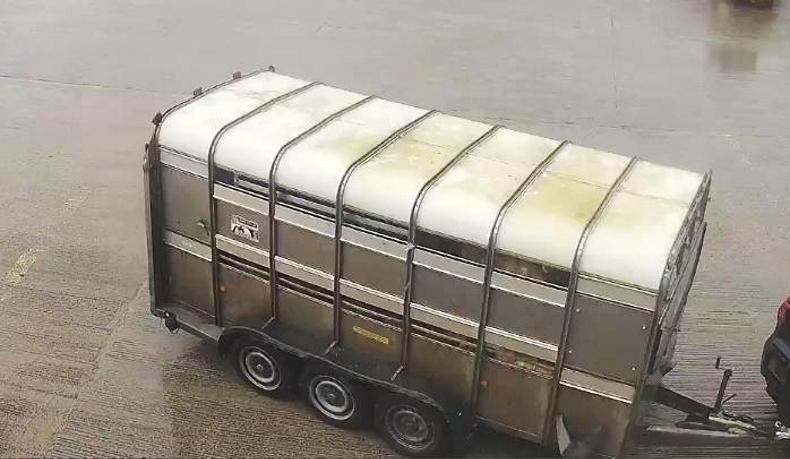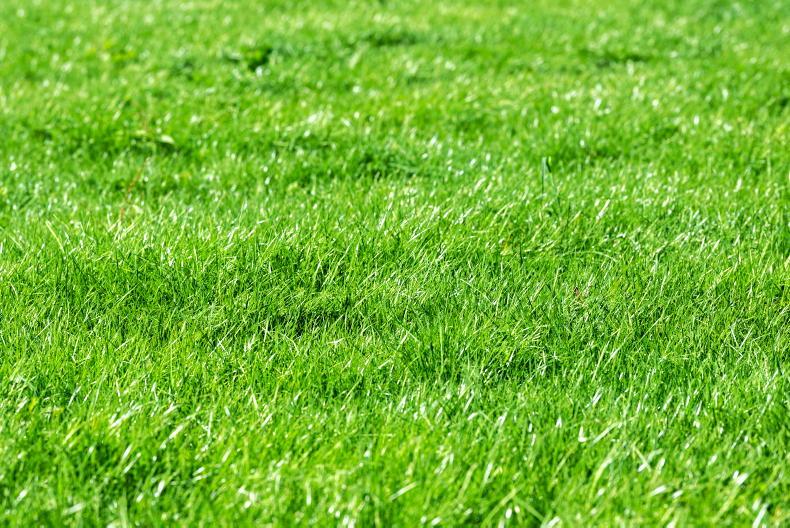Far from being an ‘anti-vaxer’, I am quite obsessed with the necessity of using vaccines.
I am also adverse to risk, so if we have at any point had an issue with an infection that cattle can be vaccinated for, I will make sure our stock are covered.
Therefore, when I went to buy a second-dose blackleg vaccine, I was frustrated to hear that my usual suppliers had run out of stock and were unable to say when more would arrive due to supply disruption.
After a series of Google searches and increasingly dispirited phone calls, I was able to source it – as long as I didn’t mind a more than two-hour round trip (which was actually an improvement on the 3.5 hour alternative I had also come across).
Extremely thankful to have found it, I paid over the phone, returned home, found my wife’s thermal picnic bag (to keep the vaccine cool, not for a day out), threw in a few ice packs and then went for what was actually a nice trip through the country.
It was a part of the world I have never seen before and possibly never would have, if not for this situation – as with many trials in farming, finding the positives and taking a philosophical attitude can make it slightly easier to cope!
But sometimes those trials can also turn into a “complete handling” and my most recent one came when putting cattle to grass.
Moving bullocks
In order to acclimatise bullocks to their new outdoor environment after a winter of confinement, and to ensure they expelled some excess energy, we moved them (a group of normally extremely placid Angus animals) from their housing to an open-sided shed.
Here, we thought they could get used to more light, race around for an hour or so, after which we would load them without incident. So far, so good.
I could do nothing but clench my teeth and fists, braced for the dreaded sounds of the cracking of fence posts and the ripping of wire
Next came a short trip up the road to an out-farm. Again, being of a cautious disposition, we didn’t let them into the intended field. Instead, they were released into a field near the yard so we could supervise them while they adjusted.
We lowered the tripper, opened the trailer gates and they proceeded though the gate quite calmly. But suddenly, startled by the brightness of the direct midday sun, seven bullocks decided to tear off in seven different directions.
I could do nothing but clench my teeth and fists, braced for the dreaded sounds of the cracking of fence posts and the ripping of wire.
Two beasts jumped into the field to the left, another hurdled a fence and sheugh, ending up in the field at the bottom, with the remainder charging around the perimeter and challenging every other boundary.
While waiting to see what the remaining group would do, I heard the original pair of escapees heading over yet another fence into the yard, then disappear down the lane at speed.
They fast became our priority, but fortunately these animals seemed to share a homing instinct similar to pigeons, as they ended up voluntarily returning to the home farm, where they were promptly confined to what would be referred to in The Great Escape as ‘the cooler’.
Matriarch cows
It’s a popular story that Aer Lingus specifically hire women of a ‘certain age’ as flight attendants who act as aviation mammys – ladies who make even the wildest and most unruly of stag parties behave with a single glare or wag of an index finger.
Adapting this theory, we brought two matriarch dry cows up to mediate with those still at grass.
We walked our mature girls round the field until they could see the single bullock in question, stood back and almost immediately, he calmed down and seemed reassured by their presence.
We opened the gates so they could re-join the bullocks in the original field and left them.
Just over an hour later, they were all happily reunited, lying in the (much more gentle) evening sun, chewing the cud – a picture of tranquillity and peace.
The influence of ‘mammy power’ is something to behold.
Read more
Power washing on through a wet spring
Too many silent heats and waiting for spring
Far from being an ‘anti-vaxer’, I am quite obsessed with the necessity of using vaccines.
I am also adverse to risk, so if we have at any point had an issue with an infection that cattle can be vaccinated for, I will make sure our stock are covered.
Therefore, when I went to buy a second-dose blackleg vaccine, I was frustrated to hear that my usual suppliers had run out of stock and were unable to say when more would arrive due to supply disruption.
After a series of Google searches and increasingly dispirited phone calls, I was able to source it – as long as I didn’t mind a more than two-hour round trip (which was actually an improvement on the 3.5 hour alternative I had also come across).
Extremely thankful to have found it, I paid over the phone, returned home, found my wife’s thermal picnic bag (to keep the vaccine cool, not for a day out), threw in a few ice packs and then went for what was actually a nice trip through the country.
It was a part of the world I have never seen before and possibly never would have, if not for this situation – as with many trials in farming, finding the positives and taking a philosophical attitude can make it slightly easier to cope!
But sometimes those trials can also turn into a “complete handling” and my most recent one came when putting cattle to grass.
Moving bullocks
In order to acclimatise bullocks to their new outdoor environment after a winter of confinement, and to ensure they expelled some excess energy, we moved them (a group of normally extremely placid Angus animals) from their housing to an open-sided shed.
Here, we thought they could get used to more light, race around for an hour or so, after which we would load them without incident. So far, so good.
I could do nothing but clench my teeth and fists, braced for the dreaded sounds of the cracking of fence posts and the ripping of wire
Next came a short trip up the road to an out-farm. Again, being of a cautious disposition, we didn’t let them into the intended field. Instead, they were released into a field near the yard so we could supervise them while they adjusted.
We lowered the tripper, opened the trailer gates and they proceeded though the gate quite calmly. But suddenly, startled by the brightness of the direct midday sun, seven bullocks decided to tear off in seven different directions.
I could do nothing but clench my teeth and fists, braced for the dreaded sounds of the cracking of fence posts and the ripping of wire.
Two beasts jumped into the field to the left, another hurdled a fence and sheugh, ending up in the field at the bottom, with the remainder charging around the perimeter and challenging every other boundary.
While waiting to see what the remaining group would do, I heard the original pair of escapees heading over yet another fence into the yard, then disappear down the lane at speed.
They fast became our priority, but fortunately these animals seemed to share a homing instinct similar to pigeons, as they ended up voluntarily returning to the home farm, where they were promptly confined to what would be referred to in The Great Escape as ‘the cooler’.
Matriarch cows
It’s a popular story that Aer Lingus specifically hire women of a ‘certain age’ as flight attendants who act as aviation mammys – ladies who make even the wildest and most unruly of stag parties behave with a single glare or wag of an index finger.
Adapting this theory, we brought two matriarch dry cows up to mediate with those still at grass.
We walked our mature girls round the field until they could see the single bullock in question, stood back and almost immediately, he calmed down and seemed reassured by their presence.
We opened the gates so they could re-join the bullocks in the original field and left them.
Just over an hour later, they were all happily reunited, lying in the (much more gentle) evening sun, chewing the cud – a picture of tranquillity and peace.
The influence of ‘mammy power’ is something to behold.
Read more
Power washing on through a wet spring
Too many silent heats and waiting for spring










SHARING OPTIONS